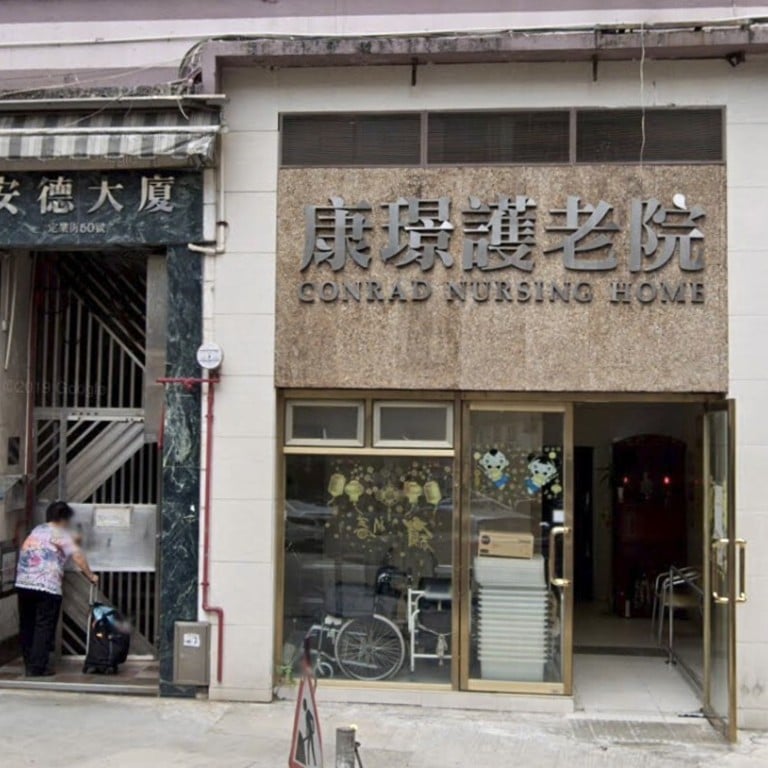
Coroner’s Court magistrate slams weak regulations, government inaction in Hong Kong nursing home abuse case
- Two days before his death, hospital staff discovered gauze and surgical tape inside the body cavity of a 60-year-old care facility resident
- Director of Cambridge Nursing Home in Ngau Tau Kok had suggested the patient, who was almost entirely paralysed, might have done it himself
At the inquest into the 2016 death of pneumonia patient Wong Chi-shing, Coroner’s Court Magistrate Monica Chow Wai-choo said the case revealed an elderly care system plagued by sloppy regulation and government inaction.
The 60-year-old lived at the Cambridge Nursing Home in Ngau Tau Kok before his demise on February 2, 2016. The gauze and tape were discovered by hospital staff after he was hospitalised for diarrhoea and vomiting.

While Chow ruled that Wong died a natural death, she concluded that an unidentified Cambridge worker had made the futile attempt to stop Wong’s diarrhoea by placing the objects inside his body – an attempt to alleviate their workload amid a manpower shortage.
“Somebody, in order to save them from the trouble of changing Wong’s diapers so frequently, inserted the objects into his rectum thinking it would help reduce his excrement,” Chow said.
Cambridge staff members pleaded innocent to abuse in the inquest, while the facility’s owners released a statement one month after Wong’s death, suggesting the objects inside his body might have been left behind by surgeons after an operation at United Christian Hospital in 2015.
Hong Kong nursing home accused of abuse after elderly man who died found with objects in rectum
That statement was proved false, however, as medical records showed Wong had received only an inspection of his intestines during the hospital visit.
One of the directors at Cambridge, Irene Luk Ngai-ling, also ran a number of other nursing homes for the company. One such facility in Tai Po was mired in controversy in 2015 after it was reported that elderly residents were being made to wait naked outdoors for a bath, with some being subject to physical abuse.
Luk testified she had made the statement concerning Wong’s death because she wrongly believed the procedure at United Christian was akin to a surgery.
I have to point out that law enforcement and regulations are loose [in the present regime], and punishment lacks deterrence
She also floated the theory that Wong, who was paralysed, may have put the gauze and tape inside his rectum using his left hand, the only part of his body he could move on his own accord.
However, that proposition contradicted the testimony of Wang Xiaobo, a caretaker at Cambridge, who told police her colleagues had been instructed by the hospital to place gauze inside Wong’s body to cure his bad stomach.
In her ruling, Chow dismissed both their claims, saying: “The only purpose of the Cambridge statement was to shift blame to hospital workers and Wong himself.”
Chow also pointed out how Cambridge had purposely kept the scandal under wraps by faking staff attendance records, adding the facility appeared to have breached relevant regulations when it was revealed it did not have the required number of workers at the facility before Wong’s death.
Hong Kong elderly home faces loss of licence after naked abuse scandal
Chow concluded that a Cambridge worker had tried to stop the old man’s diarrhoea using the gauze and tape amid a manpower shortage, but there was no conclusive evidence to confirm the culprit’s identity.
The magistrate further questioned why the Social Welfare Department opted not to prosecute Luk and other Cambridge directors, despite the apparent evidence of various breaches.
“Legal safeguards are lacking in the present regime, but it is not the court’s duty to step into matters concerning legislation. However, I have to point out that law enforcement and regulations are loose, and punishment lacks deterrence,” Chow said.
Among 10 recommendations made in relation to the case, the magistrate suggested that the government blacklist operators with poor records in the future, while actively prosecuting suspected violators.
The Post has contacted the Social Welfare Department for comment.
